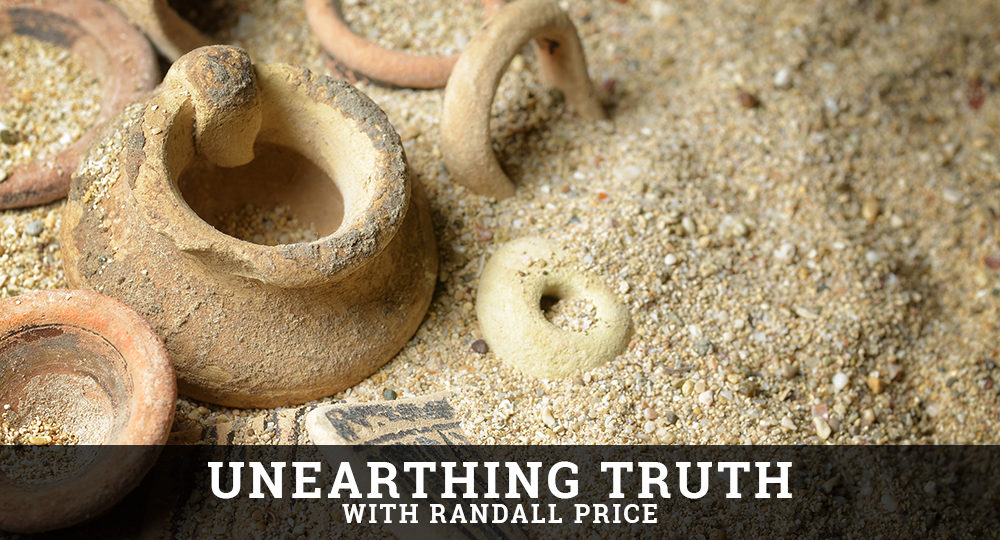Joseph in His Egyptian Context
Some Bible critics claim Joseph was the invented hero of an Ancient Near Eastern (ANE) literary drama written years after the purported event. But ancient Egyptian records support the biblical account. Joseph’s legitimacy is important because it is the historical and theological bridge between the Hebrews’ spiritual decline in the land of Canaan and their spiritual rise to national status in the Exodus and subsequent conquest of Canaan.
During their Egyptian bondage, the Israelites knew Joseph had said, “God will surely visit you, and bring you out of this land to the land of which He swore to Abraham, to Isaac, and to Jacob. . . . And you shall carry up my bones from here” (Gen. 50:24–25). His words strengthened their faith, and Moses instructed them to bring Joseph’s bones as they left Egypt (Ex. 13:19).
Joseph’s story also demonstrated God’s power to deliver His people from famine (Gen. 50:20) and served as a faithful witness through 430 years of suffering, reminding the Israelites of God’s promise to restore them to their land.
Some critics claim the Bible’s writers invented Joseph from existing materials from ANE, Egyptian, and Israelite traditions to create a history of Israel in retrospect.1 They point to the Egyptian Tale of Two Brothers, for example, which contains similarities to Joseph’s experiences of being falsely accused and imprisoned. But close scrutiny reveals sufficient differences.
Though some scholars have attempted to identify Joseph with a known figure in Egyptian history, a more reliable means of confirming historicity is by comparing the biblical account with Egyptian manners and customs, especially those from the Middle Kingdom, the time that best aligns with the biblical chronology.
For example, a section of Papyrus Brooklyn 35.1446 (late 19th century BC) lists 95 servants, half of whom are specified as coming from Canaan. Those with foreign names were given Egyptian names, just as Pharaoh gave Joseph an Egyptian name (41:45). Even more significant is the fact that 10 of those mentioned in the papyrus have uniquely Hebrew names.
Moreover, this document confirms that private landowners, not merely pharaohs, could purchase servants, as Potiphar purchased Joseph (37:36). Egyptian documents also reveal that servants purchased by Egyptian officials often supervised agricultural slaves. Genesis 39:5 says everything Potiphar owned prospered under Joseph’s hand, including his possessions in the field. The mention of Joseph’s responsibility in the field reveals a touch of authentic detail.2
In prison, Joseph met two prisoners: the king’s cupbearer (NASB, 40:1) and baker. Both positions existed in the Middle Kingdom. Joseph interpreted their dreams, as well as Pharaoh’s, leading to his great elevation in government (40:8–20; 41:8, 25). An Egyptian book on dream interpretation (ca. 1300 BC) corroborates the biblical story, revealing ancient Egyptians believed dreams were allegorical and could predict the future.3
Joseph also had to shave before entering Pharaoh’s presence, in accordance with Egyptian protocol, as Egyptian monuments certify (41:14). The Egyptian name Pharaoh gave Joseph, Zaphnath-Paaneah, also aligns with ancient names used during the Middle Kingdom (v. 45). Since names are time-dependent, it would have been impossible for a writer to invent Joseph’s story much later and know that name.
Joseph’s position of second-in-command also matches Egyptian documents that call the position “Overseer of the Royal Estates” (vv. 40–41).4 Also, the Leningrad Papyrus 1116A (ca. 1450 BC) states that ancient Egyptians used immigrants as compulsory labor in public building projects, which is what happened to the Hebrews (Ex. 1:8–11).
Many more archaeological details support the Bible, but these evidences are sufficient to remind us again that God’s Word reveals to us real history and teaches us lessons we can apply to our faith today.
ENDNOTES
-
-
- Emmanuel Kojo Ennin Antwi, “Sources, Formation and Socio-Historical Context of the Joseph Narrative: Re-Examined under the Documentary Hypothesis,” Old Testament Essays 29, no. 2 (2016): 259–276 (goo.gl/w8a1En).
- Charles F. Aling, Egypt and Bible History: From Earliest Times to 1000 BC (Grand Rapids, MI: Baker Book House, 1981), 36.
- R. Ritner, “Dream Books,” Oxford Encyclopedia of Archaeology in the Near East, ed. E.M. Meyers (New York, NY: Oxford University Press, 1997), 1:410–11.
- See W. Ward, “The Egyptian Office of Joseph,” Journal of Semitic Studies 5 (1960): 144–50.
-








How do the bible critics who claim that Joseph was an invented hero reconcile what is taught in Revelation 7? The tribe of Joseph is included in those servants – Jewish male virgin evangelists – who are to be sealed:
“… And I heard the number of them which were sealed: and there were sealed an hundred and forty and four thousand of all the tribes of the children of Israel.
5 Of the tribe of Juda were sealed twelve thousand. Of the tribe of Reuben were sealed twelve thousand. Of the tribe of Gad were sealed twelve thousand.
6 Of the tribe of Aser were sealed twelve thousand. Of the tribe of Nephthalim were sealed twelve thousand. Of the tribe of Manasses were sealed twelve thousand.
7 Of the tribe of Simeon were sealed twelve thousand. Of the tribe of Levi were sealed twelve thousand. Of the tribe of Issachar were sealed twelve thousand.
8 Of the tribe of Zabulon were sealed twelve thousand. Of the tribe of Joseph were sealed twelve thousand. Of the tribe of Benjamin were sealed twelve thousand…”
These are they which follow the Lamb wherever he goes.